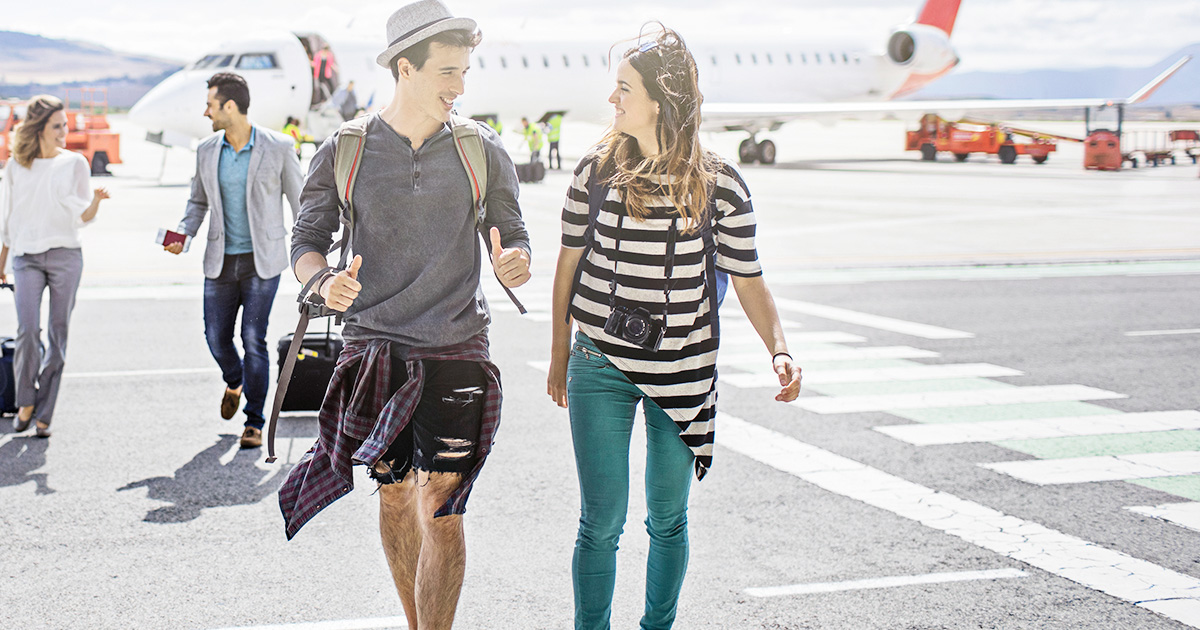Road trips can be tricky, especially during the holidays. Heavy traffic and out-of-state road trips lead to an increased number of auto accidents on the roads. And traveling during the holidays can also cause headaches for flyers trying to manage overcrowded flight schedules. Here are our top tips for safe travels during the holiday season.
When Traveling By Car
Drive sober - and watch out for drunk drivers.
A day of gratitude like Thanksgiving can quickly become a day of tragedy if family members rushing to or from a gathering are involved in an auto accident. Thanksgiving is the deadliest holiday in regard to auto accidents. A big factor in these fatalities is drinking and driving. “Blackout Wednesday” or “Bingegiving” as the night before Thanksgiving is sometimes called, is the beginning of an increase in alcohol-related deaths that happen every holiday season.
The best way to avoid legal trouble from driving under the influence is to designate a sober driver if you go out or have to travel after a family meal served with drinks. Don’t assume that if you stop drinking early enough in the meal, you will be okay to drive home later. There are many factors that impact how quickly your blood alcohol concentration (BAC) decreases – things like gender, height, weight, how much food you’ve eaten, what medications you are on, metabolism, etc. There is no formula that you can run to tell whether you are okay to drive or not. if you're unsure, opt to sit somewhere else besides the driver's seat on the way home.
Wear your seat belt.
It seems simple enough. Buckle up. But many don’t, and skipping this life-saving step can have deadly consequences. Of the 22,215 passenger vehicle occupants killed in 2019, 47% were not wearing seat belts.
Check the weather.
Depending on what time of year it is (especially winter) or what climate you're venturing into, roadtrips can be derailed by severe weather. Checking the weather before you depart and letting the party that's expecting you know that you're on your way are both good steps in preventing an emergency. The great thing about traveling by car is that travel times are more flexible. Your departure and arrival times can always be tailored to prioritize your safety.
Slow down.
Around 55 million Americans travel more than 50 miles from home over Thanksgiving weekend. And Independence Day in July is the most deadly day of the year to drive. All those extra drivers on the road can lead to traffic delays and accidents. Give yourself extra time to reach your destination. And if you’re running late, avoid the urge to speed to make up time. It’s better to show up late than to be involved in an auto accident or get an expensive speeding ticket.
Review your auto insurance policy.
If you’re heading out of state for the holidays, you may want to double-check more than just your packing list. Confirm your auto insurance coverage and make sure you have your insurance card and agent’s contact information with you in case you need to report an accident or request roadside assistance while traveling. Drivers in states with no-fault car insurance regulations, such as Florida or Michigan, should keep in mind that if you get in an accident outside of your state, you are generally not protected against someone suing you unless that state also has no-fault laws. Review your policy or talk with your insurance agent for more details.
Traveling By Plane
Choose your travel dates carefully.
Saturdays and Sundays are typically the most crowded days when it comes to flying throughout the year, but weekends that fall on or near holidays cause airports to be even more popular. Try to choose a weekday departure and return if you can.
Additionally, the time that you choose to book a flight could be financially adventageous. Per Expedia, the best day to book a flight is actually a Sunday.
Check in early for your flight.
Even if you have to fly during peak travel times, there are ways to ease the stress. Many airlines allow guests to check in remotely as early as 24 hours before the flight. The earlier you check in, the less likely you are to be bumped from an overbooked plane. You can also alleviate travel stress by checking airline schedules regularly to make sure you have the most up-to-date boarding and departure times. That way, you can hopefully avoid a last-minute mad dash to your gate.
Book early morning flights.
If you book the first flight out in the morning, you are more likely to reach your destination on the same day. Even if your flight gets delayed, you’ll likely make it out later that day. Flight delays tend to snowball throughout the day and delays on a late evening flight could get you bumped to the next day. Who wants to stay the night in the airport? Not you, especially over a holiday.
Know security guidelines.
The biggest delay at the airport is often getting through the security line. Having proper identification and knowing what you can and can’t bring with you on the plane for flight safety is paramount. Having to remove items and repack bags with an angry mob of holiday travelers standing behind you is not an ideal situation. Familiarize yourself with the TSA’s most up-to-date travel guidelines .
Bonus Tip: Consider an international trip.
While traveling internationally over holidays like Thanksgiving or Independence Day may not interest everyone, a trip outside the United States may be just the thing for travelers looking to take advantage of a few extra days off from work and unwind. At airports around the globe, these holidays are just another weekday. And if you leave the U.S. before the travel rush, it may be the most relaxing getaway yet.



